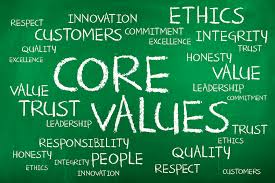Corporate Culture: Monitor, Intervene and Remediate (Part III of III)

Once defined, installed, and surrounded with a consequence management system, a corporate culture is not fixed in stone. To the contrary, as the business adapts through growth, innovation or in response to outside market and social forces, a company’s culture operates dynamically to reflect all of these influences. Change is inevitable for businesses (and for individuals in life). With this perspective, companies cannot just sit back an watch their culture evolve; rather, like everything else important in life (i.e. relationships), businesses must attend to its culture. Most importantly, a company has to continuously monitor its culture and measure its performance.
The most significant reflection of a company’s culture is employee perception and ultimately rates of misconduct. When a company’s culture is positive, rates of misconduct stay low – employees working in a positive culture value the company, are less willing to cut corners, or to stand idly by when misconduct occurs. Employees that value the company and its culture will act to prevent harm by reporting concerns to supervisors, HR, compliance or through a hotline. A robust reporting system with active participation is a positive – not a negative – reflection of a company’s culture. When people care, they act. When people don’t care, they don’t act and silent hotlines are an important sign of a deteriorating culture.
Chief compliance officers, as stewards of a corporate culture, have to re-define their immediate tasks and responsibilities to reflect the new reality and emphasis on corporate culture. In this respect, CCOs have to define specific ways to measure a company’s culture – whether by surveys, focus groups, interviews, roundtables or other means – and regularly report on these measures to senior management and ultimately the board of directors.

Companies that wait for a scandal to occur before acting have failed to do their job. Proactive compliance means prevention and focusing on your company’s culture is the most effective way to avoid potential misconduct and government investigation. For this reason, I regularly advocate that CCOs attend to at least one culture-related task each quarter and report to senior management and the board on the results.
For example, if a CCO is concerned about potential misconduct in a specific region, division, country or business line, the CCO should take a quick pulse survey limited to the specific area and report on the results. If the survey confirms the existence of potential issues, a CCO must intervene to address the concern, reinforce adherence to basic code of conduct principles and report on the specific steps. To follow up on these actions, the CCO has to monitor the indicators of culture – misconduct, reporting issues, financial concerns, HR issues (e.g. uncivil behavior rates, discrimination or harassment complaints), all in an attempt to gain clarity.
CCOs have to embrace robust monitoring procedures. It is an essential part of their responsibilities to monitor a company’s culture. It is a challenge for CCOs and many fail to devote the attention needed to this issue. It is too easy to fall back on past concerns such as training program attendance and after-the-fact audits. Proactive focus means real commitment to prevention. Nipping a problem in the bud can be the real measure of success.

Senior management and the board have to expect a CCO to attend to its culture; if not, they are sending the wrong message through priorities. Monitoring, intervention and remediation require a real-time focus and constant questioning of trends, strategic intervention and measurement of results. An intervention is only good when it improves performance as measured by key indicators of culture.
This holistic approach will not be easy. It requires clear definitions of responsibilities, strategies for monitoring and intervention, and acknowledgement of performance after remediation. Some strategies may work, others may fail. A CCO committed to making things work will act based on educated and informed strategies. Working collaboratively with partners, such as the business, HR, legal and finance, a CCO can bring about real culture improvements with a joint mission focused on one important asset – a corporate culture of ethics and compliance, the most valuable intangible asset in a company’s portfolio.















